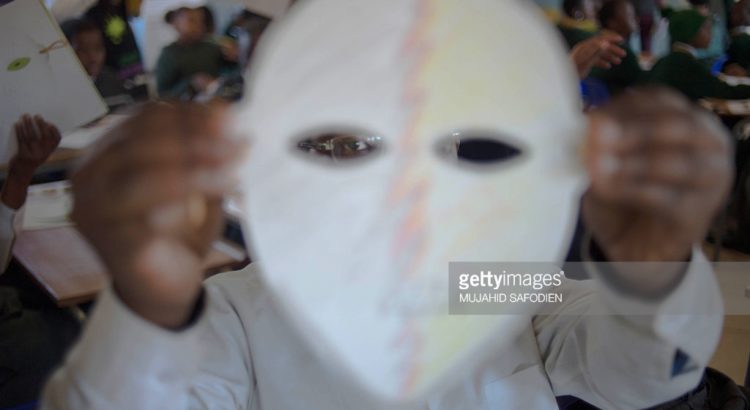Africa/FinancialTimes
Resumen: Uno de cada cuatro alumnos podrían ser instruidos de forma privada para el año 2021, según un estudio realizado por Caerus Capital. Se cree que uno de cada cuatro jóvenes africanos, o 66 m alumnos, podrían estar inscrito en alguna forma de educación privada para el año 2021, lo que implica un aumento de la enseñanza privada en todo el continente, según un informe. El crecimiento de la educación privada ha sido impulsado por la falta de fe en la educación pública o la incapacidad de los padres para encontrar un lugar, pero los críticos advierten que las escuelas privadas pueden exacerbar la desigualdad, erosionar experiencia en el sector público y, en algunos casos, proporcionar una educación inferior. El informe realizado por la consultora con sede en Washington, llegó a la conclusión, sin embargo, que los gobiernos africanos que bloquean el avance de la educación privada por motivos ideológicos, corren el riesgo de perder la financiación y experiencia de empresas privadas.
Fuente: https://www.ft.com/content/7f98d1f0-2f58-11e7-9555-23ef563ecf9a
As many as one in four young Africans, or 66m pupils, could be enrolled in some form of private education by 2021, furthering what has been a surge of private schooling across the continent, according to a report. Sample the FT’s top stories for a week You select the topic, we deliver the news. Select topic Enter email addressInvalid email Sign up By signing up you confirm that you have read and agree to the terms and conditions, cookie policy and privacy policy. The growth in private education has been driven by parents’ lack of faith in public education or inability to find a place, but critics warn that private schools can exacerbate inequality, erode expertise in the public sector and, in some cases, provide an inferior education. The report, conducted by Caerus Capital, a Washington-based consultancy, concluded, however, that African governments that block the advance of private education on ideological grounds risk losing out on both finance and expertise. Scott Featherston, one of the report’s authors, said the aim was to end what he called “the dead-end debate” over public and private education, noting how almost every country combined elements of both. African governments needed to learn how better to harness and monitor what the private sector had to offer, he said. Africa has expanded educational provision greatly since 2000, increasing primary school-age places from 91m to 158m in 2014, and bringing net enrolment up from 60 per cent to 78 per cent. Yet despite governments spending an average 18.4 per cent of their limited budgets on education — more than other regions — enrolment still lags behind the global average of 91 per cent. 158m Primary school-age places in Africa in 2014, up from 91m in 2000 Many African governments struggle to pay teachers, some of whom skip school to farm or do second jobs. Roughly 30m children in sub-Saharan Africa, whose population is growing faster than on any other continent, receive no schooling at all, according to Unicef. In practice, gaps have been plugged by private entities, from local faith-based and community schools in remote villages or slums, to international groups offering both low- and high-cost education. Quality is mixed. Some private schools achieve better results than state ones, although critics say that is because they cater to better-off students. But others are of poor quality. “The future of education in emerging markets, within Africa and beyond, will be hybrid systems,” the report concluded. The study, to be presented at the African World Economic Forum in Durban on Thursday, estimated that $16bn-$18bn of private investment would be required over the next five years. The Big Read Africa: Between hope and despair Optimism surrounding the continent has evaporated with the collapse in commodity prices Justin Sandefur, senior fellow at the Center for Global Development, said it was important to distinguish between fee-paying schools and private provision of free education. There had long been a consensus among educators that poor families should not be paying for education, he said. However, he said some African governments did not have the capacity to deliver free, universal schooling, in which case they might contract private providers to improve quality and reach. Liberia last year began a pilot project to contract out the management of some schools to for-profit and not-for-profit providers. However, Mr Sandefur said there was little evidence to back claims that private providers could consistently improve standards or that successful schemes could be scaled up to national level. The authors acknowledged potential pitfalls of turning to the private sector, including making inequality worse by giving a better education to the children of parents who could afford it. They also highlighted the lack of capacity of some governments to monitor private schools, and recognised the danger that private schools were potentially less reliable over the longer term, particularly if their model depended on turning a profit. The report’s sponsors include the US Agency for International Development (USAID) and CDC, Britain’s foreign investment arm, both of which have invested in private education in Africa.
Fuente: https://www.ft.com/content/7f98d1f0-2f58-11e7-9555-23ef563ecf9a
Imagen tomada de: http://media.gettyimages.com/photos/students-from-molaetsa-primary-school-in-soweto-participe-in-an-art-picture-id576697674








 Users Today : 14
Users Today : 14 Total Users : 35460277
Total Users : 35460277 Views Today : 19
Views Today : 19 Total views : 3418987
Total views : 3418987